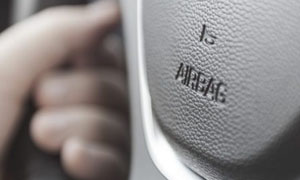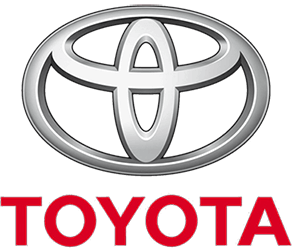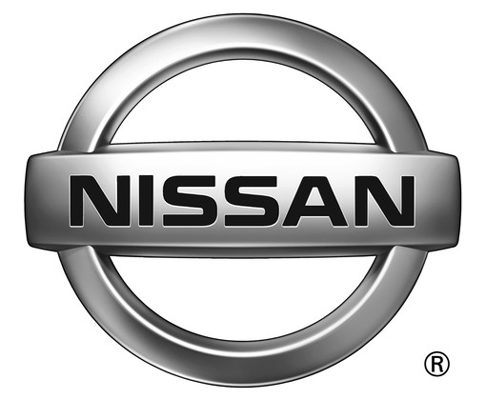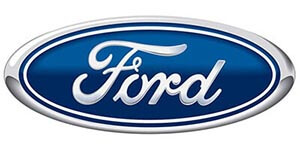 Automakers including Ford, Honda, Nissan, BMW and Toyota allegedly knew the Takata airbags they installed in their vehicles were capable of violently rupturing, but ignored the potentially lethal problem to save money, according to allegations stated in court documents by plaintiff’s attorneys for victims who were hurt by the dangerous airbags.
Automakers including Ford, Honda, Nissan, BMW and Toyota allegedly knew the Takata airbags they installed in their vehicles were capable of violently rupturing, but ignored the potentially lethal problem to save money, according to allegations stated in court documents by plaintiff’s attorneys for victims who were hurt by the dangerous airbags.
Contrary to previous claims that the automakers were unaware of the problems resulting from airbags made by their Japanese supplier Takata, the criminal investigation by the Justice Department is revealing a more sinister relationship between the automakers and their largest supplier of airbags.
In a class-action lawsuit filed in Florida, company documents show how automakers and their top supplier were involved behind the scenes. Ford, Honda, Nissan and Toyota allegedly knew about the potential for the safety equipment to rupture and injure or kill a motorist as far back as a decade ago — before recalls were made.
These new allegations have been denied by Honda. There has been no statement released by the other three automakers, but they are expected to issue a response soon about what they knew and when they knew it.
Cost cutting by an automaker at the expense of consumer safety is a huge accusation against these companies, but the plaintiff’s lawyers are now saying Takata’s problems with explosive airbags were widely known in the airbag supply industry.
Last year, the New York Times reported that not only did General Motors know about the defective airbags, but they actually “pressed their suppliers to put cost before all else.”
Takata Airbag Recall
 There’s a lot at stake for all those involved. The defective airbags created the country’s largest recall ever with more than 70 million airbags in 42 million vehicles being recalled. Attorneys representing the plaintiffs — victims who were injured or lost a loved one due to the defective airbags — are revealing in court the connection between the automakers and their suppliers. They are being described as willing accomplices, rather than unwitting victims. They want to show that automakers knew about the potentially explosive chemicals used in the airbags, but used them anyway to cut costs. They later tried to cover-up their involvement.
There’s a lot at stake for all those involved. The defective airbags created the country’s largest recall ever with more than 70 million airbags in 42 million vehicles being recalled. Attorneys representing the plaintiffs — victims who were injured or lost a loved one due to the defective airbags — are revealing in court the connection between the automakers and their suppliers. They are being described as willing accomplices, rather than unwitting victims. They want to show that automakers knew about the potentially explosive chemicals used in the airbags, but used them anyway to cut costs. They later tried to cover-up their involvement.
Takata plead guilty in court on Monday, but the $125 million deal was rejected in favor of going after the automakers’ deeper pockets with a potential to instead establish a larger $850 million fund.
The Takata plea deal was affirmed by presiding Judge George Caram Steeh who argued with attorneys that it was in the best interest of the victims. This would not preclude a separate action against the automakers in civil court.
 The evidence presented to the court included damaging emails and internal documents provided by Honda. The documents reveal that as far back as in 1999 and 2000, the automaker was actually involved in developing the highly explosive propellant that is sealed in a steel container or can used to inflate the airbags.
The evidence presented to the court included damaging emails and internal documents provided by Honda. The documents reveal that as far back as in 1999 and 2000, the automaker was actually involved in developing the highly explosive propellant that is sealed in a steel container or can used to inflate the airbags.
Specifically, the plaintiff’s attorneys stated that they have evidence showing that there were at least two ruptured airbag inflaters during testing at Honda’s own facilities. Despite the problems, Honda ignored the problems with the propellant and objections by Takata and insisted on using it in its automobiles, the report said. The documents filed with the court stated that Honda chose to do this because the airbags were “inexpensive.
So even though Honda was aware of an airbag explosion that injured an Alabama driver in a Honda Accord back in 2004, it wasn’t until 2008 that Honda would recall 4,000 vehicles. The Alabama incident was categorized as “an anomaly” and therefore did not warrant the attention of federal safety regulators.
“Honda reasonably believed, based on extensive test results provided by Takata, that they were safe,” the company stated in court documents. Honda also states that it handled the situation appropriately and that its decisions were not based on price as sometimes Takata airbags were not always cheaper, but “more expensive” than alternatives.
TOYOTA, NISSAN, FORD, BMW – WHAT DID THEY KNOW?
 TOYOTA: Despite concerns about safety, court documents state that internal records obtained from other automakers such as Ford, Toyota and Nissan show that cost influenced their decisions to purchase Takata airbags in the early 2000s. Toyota apparently had “large quality concerns,” internal documents described the airbags as “unacceptable,” and a Takata inflater ruptured during testing at a Toyota plant in 2003.
TOYOTA: Despite concerns about safety, court documents state that internal records obtained from other automakers such as Ford, Toyota and Nissan show that cost influenced their decisions to purchase Takata airbags in the early 2000s. Toyota apparently had “large quality concerns,” internal documents described the airbags as “unacceptable,” and a Takata inflater ruptured during testing at a Toyota plant in 2003.
 NISSAN: Documents show that Nissan began to experiment with ways to eliminate the airbags exposure to moisture as it knew this could make them unstable. A drying agent was used in an attempt to fix the problem in 2005, after the manufacturer began to have concerns about possible explosions. This was already a problem discovered by Takata engineers who struggled to overcome the problem, but never did stabilize it.
NISSAN: Documents show that Nissan began to experiment with ways to eliminate the airbags exposure to moisture as it knew this could make them unstable. A drying agent was used in an attempt to fix the problem in 2005, after the manufacturer began to have concerns about possible explosions. This was already a problem discovered by Takata engineers who struggled to overcome the problem, but never did stabilize it.
 FORD: An inflation expert at Ford objected to using Takata’s problematic inflaters due to the known stability problems related to moisture, but Ford’s decision makers chose to install Takata airbags anyway, the court filings state. The reason Ford did this was apparently because Takata was the only supplier who could provide the large amount of airbag inflaters it needed.
FORD: An inflation expert at Ford objected to using Takata’s problematic inflaters due to the known stability problems related to moisture, but Ford’s decision makers chose to install Takata airbags anyway, the court filings state. The reason Ford did this was apparently because Takata was the only supplier who could provide the large amount of airbag inflaters it needed.
 BMW: Federal prosecutors alleged that based on circumstantial evidence, BMW was also involved in what they are describing as a cover-up, however, the German automaker has refused to provide documents so far.
BMW: Federal prosecutors alleged that based on circumstantial evidence, BMW was also involved in what they are describing as a cover-up, however, the German automaker has refused to provide documents so far.
Lemon Law/Personal Injury Claims Help — Call 800-235-6801
 Motorists who are grappling with ongoing problems with their vehicle could be eligible for compensation under California Lemon Laws.
Motorists who are grappling with ongoing problems with their vehicle could be eligible for compensation under California Lemon Laws.
Johnson Attorneys Group is dedicated to helping people and has served thousands of clients over the years. We helped them resolve their lemon law as well as personal injury cases and we can help you. Call us for a FREE CONSULTATION at 800-235-6801. Remember that our attorneys fees do not come out of your settlement because the manufacturer is required to pay them directly to us under California Lemon Laws.
- Toyota Recall 443,000 Tundra Trucks for Reverse Lamp Defect - June 2, 2025
- Ford Recall Over 1 Million Vehicles for Rearview Camera Defect - May 29, 2025
- Ford Recalls 2025 F-150 Pickup Trucks Over Steering Defect - May 19, 2025
